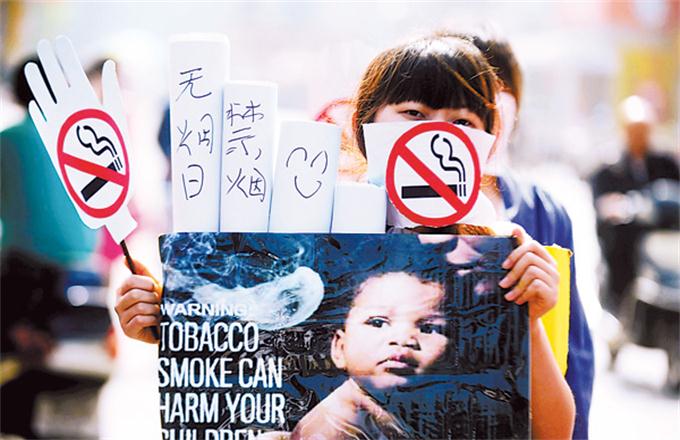Reducing cervical cancer threat through vaccine
About four months ago, Chinese women expressed their happiness at the approval of a long-awaited vaccine which protects against the cancer-causing human papillomavirus, better known as HPV.
Their happiness, however, didn't last long. It turned to disappointment, if not anger, as they learned early this month that the vaccine was being phased out in the United States.
GlaxoSmithKline has confirmed that it will no longer supply the US market with Cervarix because of the declining demand, after the US Centers for Disease Control and Prevention recommended the vaccine Gardasil 9.
Gardasil 9 is produced by US-based company Merck, and offers protection against nine strains of HPV, including the two main cancer-causing types, type 16 and 18. Cervarix offers protection against only type 16 and 18, which account for about 70 percent of all cervical cancer cases.
Although it has been available for many years in the US and other parts of the world, including even some less-developed African countries such as Rwanda and Uganda, it has taken more than eight years from the initial application for GSK to get the final approval to sell the Cervarix vaccine in China.
Now despite its proven effectiveness in preventing cervical cancer, the Chinese public is complaining that they still will not have access to the HPV vaccine which provides the broadest protection. And as one online post said, the vaccine that has been approved has become outdated before it becomes available.
China reports more than 130,000 cervical cancer cases each year, which account for 28 percent of world's total, according to official statistics. But Qiao Youlin, an acclaimed epidemiologist of oncology, who sits on the expert panel for HPV vaccine assessment and approval of the country's top drug authority, said Merck has not yet begun the approval process by applying to register Gardasil 9 with the Chinese authorities.
Qiao stressed that Cervarix protects against the major cervical cancer-causing HPV types and thus would reduce cervical cancer in China. But he said it is unlikely the vaccine will be integrated into China's routine immunization program as is the case in many other countries. So people will have to pay to have the vaccine.
Of course, given the sheer size of China's population, affordability is a practical concern. But the government should at least work more efficiently to introduce vaccines with proven effect internationally to enable the people to buy them at home.
Vaccines save lives and prevent infectious diseases, and save money on medical bills for the government. For cost-effectiveness, the government should gradually integrate the HPV vaccine into the routine immunization program, which works best to increase coverage and thus improve equity in people's rights to health.
Hepatitis B provides an example in this respect.
The world's first recombinant hepatitis B vaccine, still in use today, was introduced and approved in the US in 1986. In China, the vaccine was available and put on the recommended vaccination list by the government in 1992.
Worldwide, individuals infected with hepatitis B number 350 million; one-third of those live in China and most of them were infected in the 1980s. Many eventually developed liver cancer, costing lives and money.
As the world's second-largest economy, China shouldn't allow a similar scenario to happen again.
Over the decades China's drug management capacity, particularly the post-marketing evaluation, has been significantly strengthened and become more efficient, and streamlined approval procedures can be expected to strike a balance between safety and efficiency.
Last month, the Communist Party of China Central Committee and the State Council, the country's Cabinet, issued the "Healthy China 2030" blueprint, which promises to assure residents get equal access to basic health services by 2020. Let's start with accelerated introduction of new drugs, like the latest HPV vaccine.
The author is a senior reporter with China Daily. shanjuan@chinadaily.com.cn
(China Daily 11/12/2016 page5)




















